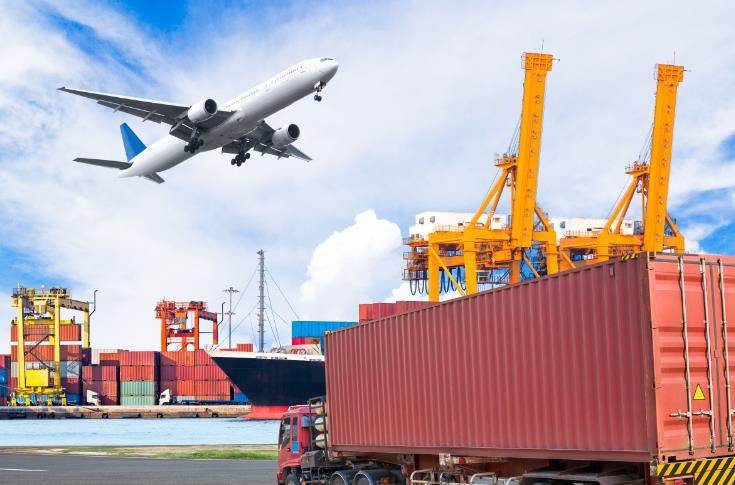In today’s fast-paced and closely interconnected business world, logistics security is like a solid foundation for supply chain management, and its importance cannot be overemphasized.

The connotation of logistics security is rich and diverse. From the perspective of conceptual definition, it includes both the physical security of goods remaining intact, not stolen or destroyed throughout the entire logistics process, and the information security of logistics information being accurate and not leaked or tampered with. In terms of specific categories, the storage safety of goods is of vital importance. Warehouse fire prevention, moisture prevention, anti-theft and other measures must be strictly in place to ensure the safety of goods during the storage stage; safety during transportation is even more critical. Choose the right mode of transportation and conduct strict monitoring throughout the process to ensure that the goods arrive safely at the destination; and logistics information security is like a hero behind the scenes, silently guarding the confidentiality and integrity of data to prevent data from being maliciously used.
Logistics security has far-reaching significance for supply chain management. In terms of product quality and customer satisfaction, only when the goods are delivered to customers safely after going through the logistics process can we ensure that the product quality meets expectations and win customer satisfaction and loyalty. A case where a customer receives damaged goods due to logistics safety issues is enough to damage the company’s reputation and cause customer loss. In terms of maintaining efficient supply chain operations, logistics safety guarantees can ensure on-time delivery. Once a logistics safety accident occurs, it may trigger a series of delays and cost increases, affecting the smoothness of the entire supply chain. For example, a transportation vehicle failure caused the goods to arrive late, disrupting the production plan and significantly increasing costs. In the face of risks and uncertainties, logistics safety can reduce their impact. Whether it is natural disasters or human factors, logistics safety measures can effectively reduce the probability of their occurrence or reduce losses. When responding to sudden disasters, a company with a complete logistics safety system can often resume operations faster. From the perspective of enhancing the overall competitiveness of the supply chain, the excellent performance of logistics safety can enable companies to stand out from their peers, gain competitive advantages, and win more market share and long-term development opportunities.
Many factors will affect logistics safety. The personnel factor is the first to bear the brunt. The professionalism, sense of responsibility and safety awareness of employees directly determine the safety of logistics operations. If employees lack the necessary training and cognition, it is easy to make mistakes at work. Facilities and technology factors are equally critical. Advanced and reliable logistics equipment can greatly improve the safety factor, while the use of intelligent technology can achieve real-time monitoring and early warning, and detect potential problems in advance. Management and system factors are indispensable. Scientific management systems and strict operating specifications are important guarantees for ensuring logistics safety. At the same time, a sound supervision and assessment mechanism can promote the effective implementation of the system. External environmental factors should not be underestimated. The changing natural environment and changes in policies and regulations may bring challenges to logistics safety.
To improve the level of logistics safety, we can start from multiple aspects. Strengthen personnel management and training, provide employees with comprehensive professional training and career development plans, and establish incentive mechanisms to encourage them to attach great importance to logistics safety. Optimize logistics facilities and technology applications, actively introduce advanced equipment, and use technologies such as the Internet of Things and big data to improve monitoring and management levels. Improve management systems and processes, establish strict operating specifications and quality standards, formulate detailed risk assessments and emergency plans, and conduct regular drills. Strengthen cooperation and collaboration, establish close cooperative relationships with suppliers, transporters, etc., and achieve information sharing and smooth communication.
Let’s look at two cases. A well-known enterprise has achieved efficient and safe circulation of goods by building a complete logistics safety management system, which not only won high praise from customers, but also gained an advantage in market competition. Its successful experience is worth learning from. Another enterprise suffered huge losses due to supply chain interruptions caused by logistics safety issues, which also warns us that logistics safety cannot be ignored for a moment.
In short, logistics safety plays a vital role in supply chain management. It is the key to ensuring product quality, maintaining efficient operation, coping with risks and improving competitiveness. Looking to the future, with the continuous advancement of technology and the development of the market, logistics safety will face new challenges and opportunities. We must always maintain a high level of attention and continuous investment in logistics safety, and continuously improve and optimize logistics safety management to achieve stable, efficient and sustainable development of the supply chain. Let us work together to create a safer and more reliable logistics environment!



